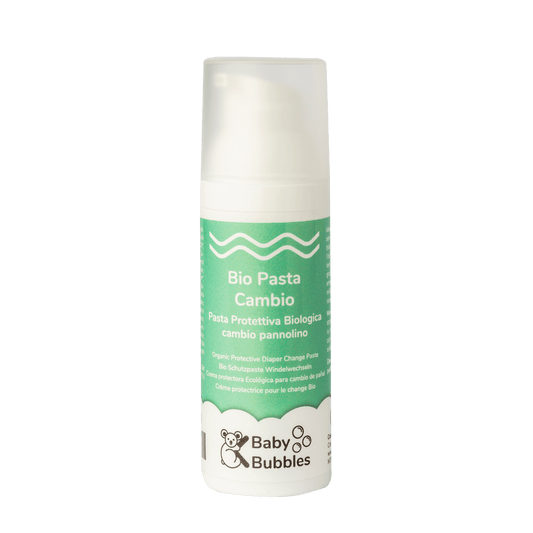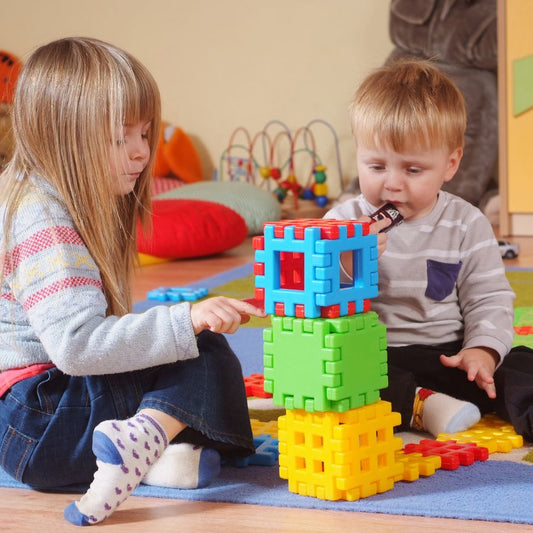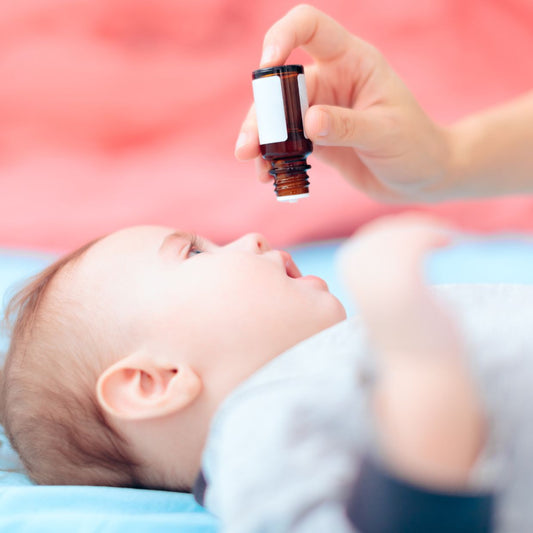Healthcare Professional Gaia Madaschi, Dental Hygienist, talks to us about milk teeth eruption: when do a baby’s first teeth emerge and why is it important to take care of them? Continue reading the article.
Dear parents, I am going to let you breathe a huge sigh of relief by removing all your worries related to the appearance of your baby’s milk teeth.
In fact, I'm going to tell you something that will reassure you quite a bit: each and every baby is different and has their own teething timeline, this means that an infant’s teeth can come through either earlier or later than other babies of the same age.
Early or late arrival of baby teeth does not mean something’s wrong. Looking after them once they have come through is what is important. In the following paragraphs we’ll explain how to do this!
How many milk teeth are there?
It is important to know that primary baby teeth comprise of a total of 20 teeth: 8 incisors, 4 canines and 8 molars.
Are my baby's milk teeth late?
The time span in which teeth can emerge is very wide. Therefore, there’s no need to worry. The important thing is to check all 20 teeth come through eventually.
It is always better to check any doubts you may have with your dentist. Your baby should also visit the dentist for the first time at around 18 months old.
Milk teeth have usually erupted by the time your child is 2 or 2.5 years old:
- The first milk tooth, lower central incisor, erupts at around 6 months old, followed closely by the upper incisors.
- Lower lateral incisors come in at around 10 to 16 months.
- Upper and lower molars erupt at around 13 to 19 months of age.
- Canines, both upper and lower, come in between 16 and 23 months.
- Second molars are last and sprout between 23 and 33 months.
Interestingly, when milk teeth erupt early, then a child’s permanent teeth will also come in earlier. The opposite is also true, if milk teeth are late, then permanent teeth will also appear late.
Milk teeth health is just as important as permanent teeth health
Many parents tend to underestimate the importance of keeping a child’s milk teeth healthy because they "fall out" anyway.
However, taking good care of your child’s milk teeth plays a key role in eruption and proper development of their permanent teeth. Premature loss of a milk tooth can lead to crowded permanent teeth.
It is therefore very important to look after your child's teeth once they emerge, and even beforehand. Let's take a look at how.
Cleaning the oral cavity: when to start
We generally tend to wait until a baby’s first milk tooth has sprouted before we start to think about cleaning. However, we should actually begin way beforehand, from the moment they are born.
You don’t have to become obsessed with cleaning your infant’s oral cavity after every feed, the important thing is to do it at least twice a day, after the morning and evening feed.
This helps remove any milk deposits, keeping the mucous membranes clean and makes it a positive part of their daily routine right from the word go.
If you struggle at first, persevere as, with time, your baby will gradually get used to it. This will help with their dental hygiene once their first teeth have erupted, when it is more important than ever to keep them clean.
In fact, the longer you wait, the more your baby may struggle, and this may also create negativity. This can often occur due to the pain they experience when teething and not wanting their sore gums touched, especially by an unfamiliar object.
How to clean milk teeth
How should you brush your baby's teeth? Wet the toothbrush bristles and apply a tiny smear of toothpaste. Try to make small circles with the toothbrush, from the inside out. If you can't make circles, just make back and forth movements.
It is important to choose the right toothpaste for their age group: it should contain 1000 ppm of fluoride and you only need to use a very small amount, just a tiny smear on the bristles.
There will be times when your little one will be more cooperative, and other times less so. This is why it is important to brush their teeth at least twice a day because the next time you will be able to do what you were unable to do the previous time.
A trick to make brushing more fun for them
Divide brushing their teeth into two phases. The first being purely a game: put a toothbrush in your baby’s hand so that they can play with it. They will chew or suck on it. This is a moment of play, experimentation and also a great way to bring them closer to being independent when the time arises.
Use a baby toothbrush so you don't have to worry about the bristles getting damaged.
Now it's time for phase two: brushing their teeth.
Good dental hygiene of your child’s milk teeth will help avoid cavities developing. If cavities do occur, you should contact your dentist immediately as they need to be treated even in milk teeth, despite the fact that they’ll eventually fall out. It is a good idea to intervene as soon as possible to try to prevent your child from experiencing pain.
Don't worry too much, you’ll soon see that if you clean their teeth well, you won’t have any problems with cavities.
Healthcare Professional, Gaia Madaschi - Dental Hygienist
Gaia Madaschi, is a dental hygienist from Bergamo, Italy. She graduated from the University of Milan in 2013 with a degree in "Dental Hygiene" and then specialised with a first level master’s degree in "Dental Hygiene 3.0: experience meets technology" at the University of Brescia.
Instagram Profile: @gaiamadaschi.igienista.bergamo.








